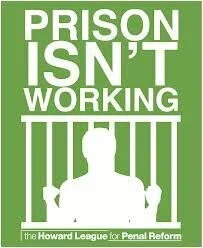we reiterate that a solution to the issue of driver distraction is not capable of resolution via the use of artificial intelligence to detect offences. On the terms of the amended primary legislation, this simply means that the power to enforce law becomes easier and automated. An increased ease by which law may be enforced is not a legitimate means to addressing the issue of distracted drivers
Read MoreThe possibility that Australians may be required to show proof of having received a COVID-19 vaccination in order to access basic services raises some serious civil liberties concerns.
Read MoreIt is said that these measures are justified by the precautionary principle. However, this principle does not sit well with individual liberty. It puts pressure on officials to take steps in the absence of clear evidence and gives permission for arbitrary decisions. Rather than balancing risk against liberty, the effect of this principle is that liberty is what you have left after all possible precautions have been taken. In effect it sets the value of liberty at naught before balancing commences
Read MoreWe would point out that the people in question have committed no crime. They are not being detained as punishment. They are being held for everybody else’s protection. The community should be prepared to pay so these people can live in reasonable conditions
Read MoreToday’s Courier Mail report (15/2/21) dealing with serious overcrowding in Queensland jails resulting in fatigued prison officers having to work 18 hour shifts and sleeping in their cars to keep up with the soaring inmate population has caused the QCCL to call on the Corrective Services Minister (Mark Ryan) as to why an Independent Inspectorate of Prisons has not been established in Queensland.
Read MoreThe QCCL supports a statutory tort for the invasion of privacy as a means for people to take their own action to protect their privacy in cases where the statutory regime and the common law do not apply or do not provide adequate protection.
Read MoreThe QCCL condemns the latest bid in the law and order auction that is going on in this election, namely the announcement by the opposition that it will introduce a curfew for young people in Townsville.
Read MoreIn formulating our views on what such a law should look like we have had regard to the principle that the press is and must be independent from government and has a presumptive though not unconditional right to seek out the news. Freedom of speech is rooted in a distrust of the government’s capacity to regulate speech particularly political speech where it is in a position of a conflict of interest. This conflict is no starker when it is seeking to restrain the use of embarrassing information obtained by journalists
Read MoreWe submitted that the law should reflect the proposition that in determining whether or not an accused’s belief that a person was consenting was reasonable, the jury should be able to take into account whether the accused was aware of circumstances which would lead a reasonable person to inquire further into the issue of consent. So that if the circumstances known to the accused were such that a reasonable person would not or might not take further steps to ascertain consent, then the accused will not be required to take any further steps either.
Read MoreThe extraordinary powers, even though they may be justifiable, demand immediate accountability.
Emergency measures do not justify less scrutiny. In fact, the opposite is the case, we need to be even more alert to the threats to our basic liberties. In our submission that should be a key focus of this committee.
In broad terms, the use of surveillance devices without the consent of the person the subject of the surveillance will be prohibited.
Read MoreThe coronavirus crisis has raised many complex and difficult issues for civil libertarians, none more so than in the case of the right to protest, particularly in the context of such an important issue as the massive over incarceration of Australia’s First Nations people
Read MoreWe acknowledge that all the rights in the Human Rights Act can be limited in accordance with section 13. However, it is the Council’s position that mandatory vaccination is only acceptable where there is an exemption for those who hold a personal, philosophical or religious objection to it.
Read MoreThe QCCL has written to the Commissioner of Police asking for comment in relation to reports that police are using ANPR (Automated Number Plate Recognition Technology) to charge people with breaching the Home Confinement Direction by travelling more than 50km from their home.
Read MoreThe NSW, Queensland and South Australian Councils for Civil Liberties support the introduction of effective digital contact tracing if it has robust privacy and transparency legislation underpinning it. There are however outstanding issues the Government should address before this Bill is passed.
Read MoreThe Federal Government’s draft Bill in relation to the COVIDSAFE app contains a number of welcome features including the very strong prohibitions on people requiring another person to download the app and the involvement of the Privacy Commissioner in reviewing the system. But it does not go far enough.
Read MoreThe federal government’s announcements in relation to the Covidsafe App contain a number of good features. However, fundamental issues of concern remain.
Read MoreThe QCCL today expressed its concern about the apparent decision by the government to ask Australians to use the Singaporean “Trace Together“ COVID-19 tracking app, which will not adequately protect the privacy of Australians.
Read MoreQCCL calls upon the Police Commissioner to at least twice weekly release details of the conduct that is resulting in people being charged or given a ticket for breaching the home confinement direction.
Read MoreThe QCCL condemns the decision of the Queensland government yesterday to ram through its health crisis legislation and give itself the power to close down the Parliament.
Read More



















